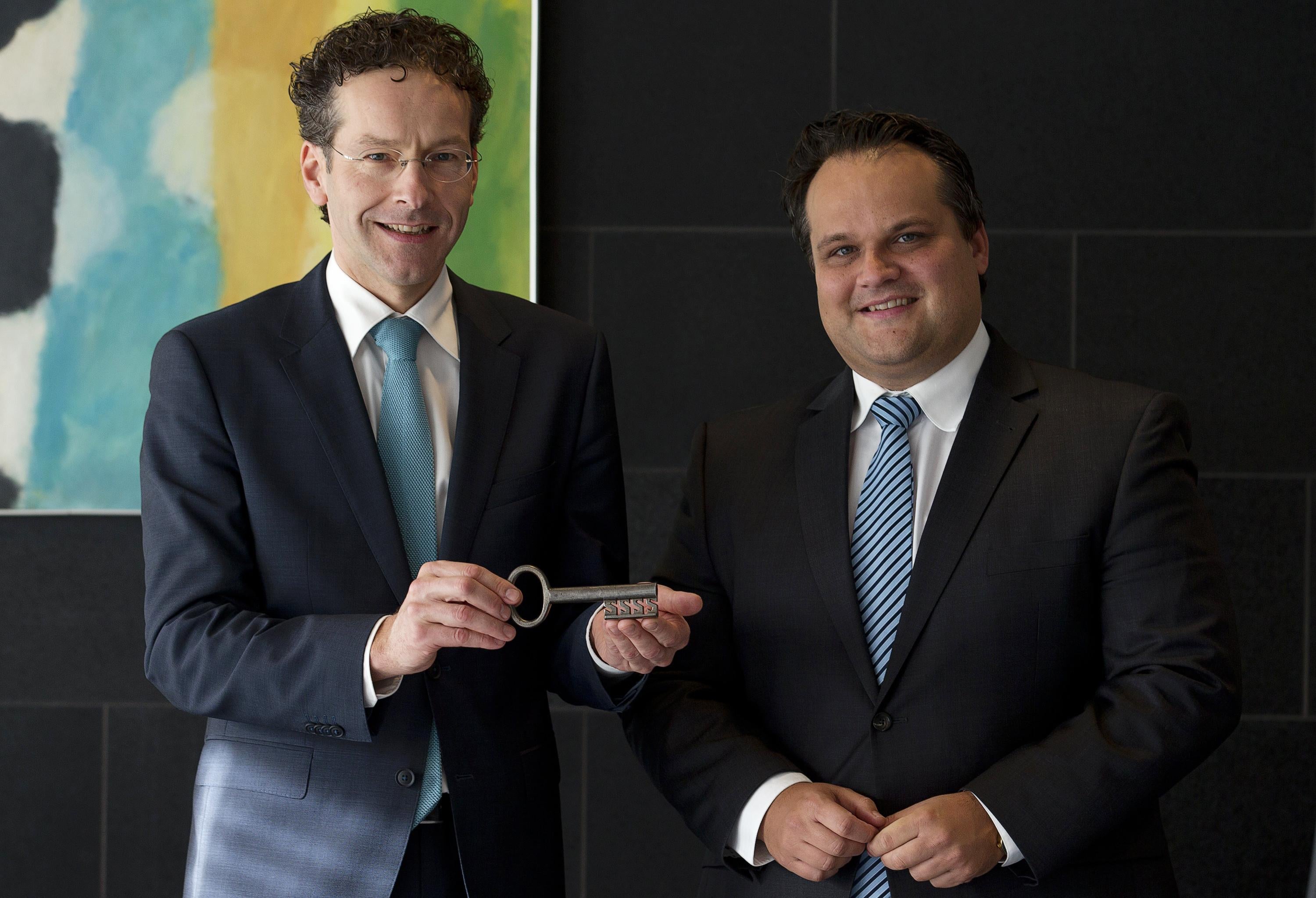The key Troika objective in Cyprus was to make creditors of Cyprus’ banks pay some of the burden of cleaning up the institutions’ insolvency without prompting bank runs or panics in other countries. It’s a tricky path, but through a whole week of Cypriot bank closures, it seemed to be basically working. And then came Jeroen Dijsselbloem to ruin the party, and now everyone’s spent the past 24 hours denouncing him while he’s been paying penance. What happened? And who is this guy?
Well he said exactly what you’re not supposed to say, namely that what happened in Cyprus is a “template” for dealing with other banks in the future.
That’s the kind of remark that it would be very sensible for, say, a blogger to make. But Dijsselbloem is president of the Eurogroup of eurozone finance ministers, and a guy in his role is supposed to be reassuring people. Instead he caused them to panic. His remarks prompted an immediate uproar and an immediate walkback stating simply that:
Cyprus is a specific case with exceptional challenges which required the bail-in measures we have agreed upon yesterday. Macro-economic adjustment programmes are tailor-made to the situation of the country concerned and no models or templates are used.
Today the official word from Dijsselbloem is that he just made a mistake because he didn’t understand what the word template means.
But given that gaffe-avoidance is basically the key job qualification, it’s reasonable to ask: Who is this guy? And how’d he get the gig? The answer tells you a lot about the still-rickety institutional structure of the eurozone.
The answer is that the Eurogroup presidency rotates among the different member finance ministers. So Dijsselbloem isn’t just Eurogroup president, he’s finance minister of the Netherlands. And while in the United States the sensitive treasury secretary job usually goes to an executive branch veteran (Jack Lew) or someone with extensive financial markets experience (Hank Paulson) or both (Robert Rubin), in the Netherlands it’s a job for a politician. And the second Rutte Cabinet is a grand coalition between the market-liberal VVD party and the social democratic Labour Party (PvdA). And given the election outcome, the way the Cabinet is structured is that the prime minister is from the VVD and the overall orientation of the government is toward austerity, but PvdA has a disproportionate share of the important ministries. So Dijsselbloem got the job in virtue of his high standing inside the Labour Party—he served, for example, as interim leader of the Labour parliamentary group last time they had to pick a new leader—rather than any particular expertise in finance or economic affairs.
Of course gaffes happen in all walks of like, but the herky-jerk administrative structure of the eurozone encourages this kind of blowup. In economic terms, the eurozone is a true superpower—essentially the equal of the United States. And on the central bank side, the ECB and the Federal Reserve can stand toe-to-toe. But on the political side, the Treasury Department is properly set up to serve as finance ministry for a global superpower; on the Eurozone side, there’s basically nothing.
Most fundamentally of all, though, the Dijsselbloem freakout occurred because the underlying financial problems are still there. In a happy world of well-capitalized banks, everyone could have looked at his original statement and said, “Oh, well, no problem—Cyprus is nuts, but the banks here are well-regulated and well-capitalized.” But nobody believes that. Even in the stronger countries European banks seem dangeroulys undercapitalized, and the whole system is being held together by a delicate web of “confidence” and implicit guarantees. Loose lips can blow up whole economies in that situation.
